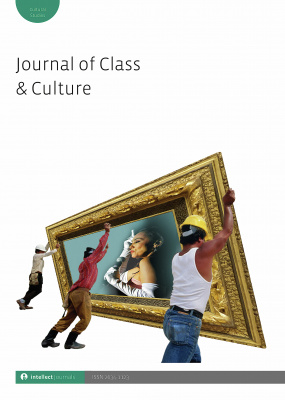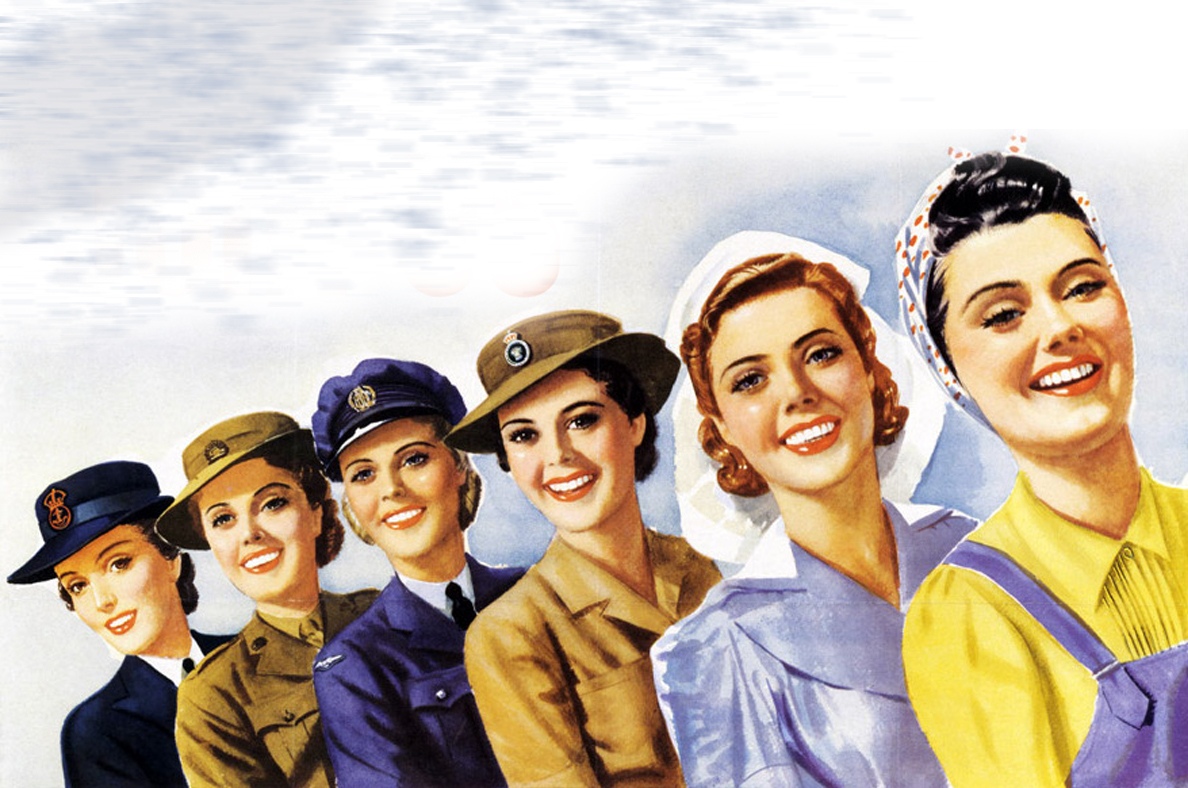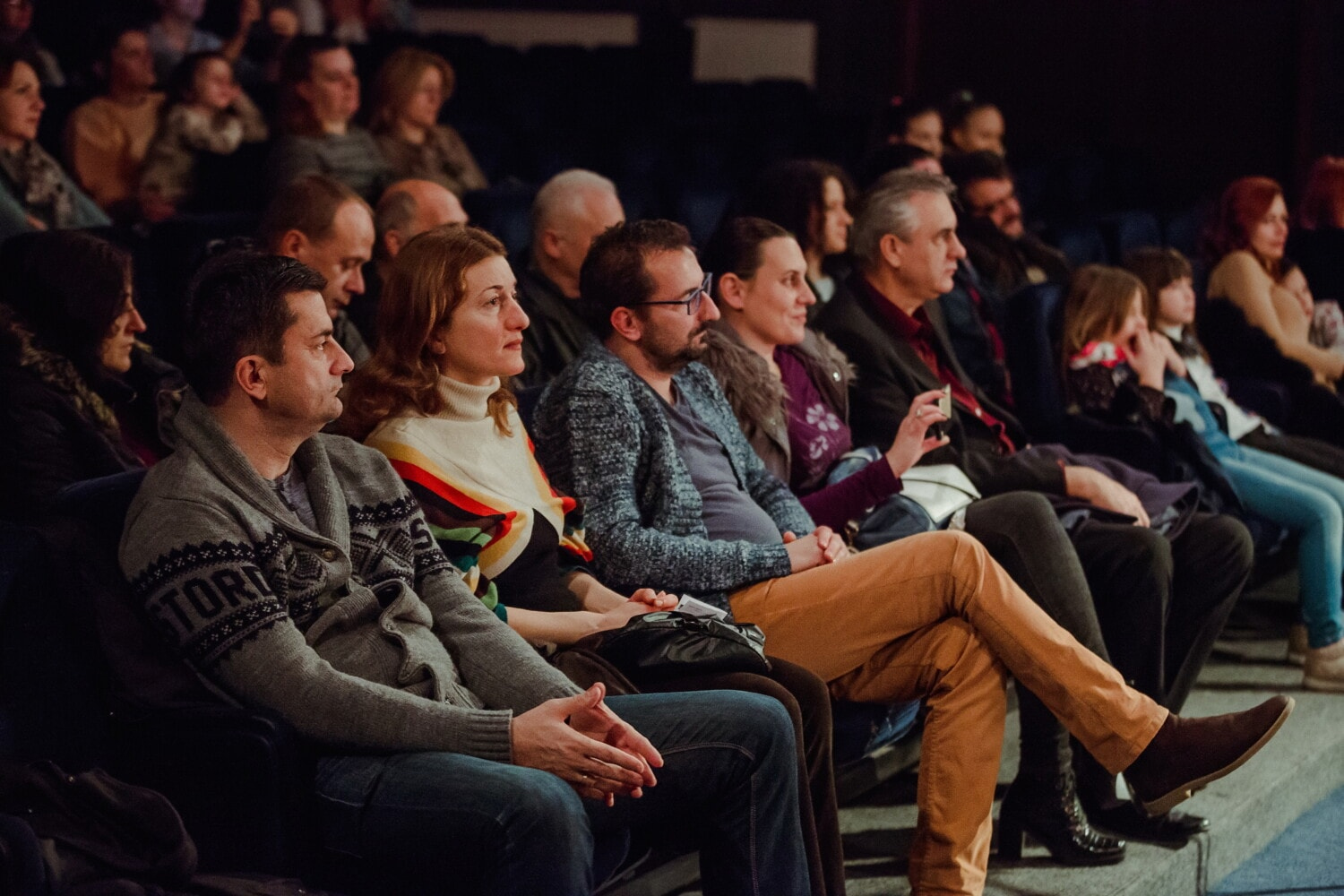UNE Popular Culture Research Network
About us
Our dynamic network brings together scholars and researchers who share a fascination in the academic inquiry into all manner of mass phenomena.
Research and collaborators
Our recent publications, projects and collaboration networks.
News and Events
M/C Journal "Bubbles" special issue
PoPCRN founding members Jo Coghlan and Lisa Hackett recently edited a special issue of the M/C Journal on “Bubbles”
M/C Journal, Vol. 24 No. 1 (2021): Bubbles, Edited by Jo Coghlan and Lisa J. Hackett
Special Issue: Masculinities on Screen
The Special Issue by Guest Editors Lisa J. Hackett and Jo Coghlan will consider the ways masculinity has been constructed on screen through costuming, whether in historical or contemporary contexts. We are particularly interested in how these are reflected in, or influenced by, fashion and/or everyday clothing.
See below for more info.
Out of the Wardrobe
An international panel discuss of how wardrobe studies can help us to understand how what we wear can make a sustainable future! The event will take place October 21st, 9.45am.
For more information and to get tickets, follow the link here.
Current Call for Papers - PopCRN Conferences
PopCRN (the Popular Culture Research Network) hosting a virtual symposium exploring uniforms in popular culture to be held online on Thursday 20th & Friday 21st April 2023. Aviation Cultures Mark VII PopCRN (the UNE Popular Culture Network) are exploring the concept of royalty with a virtual symposium focused on the representations of the British royal family in popular culture to be held online on Thursday 28th & Friday 29th September 2023. Please email abstracts (200 words) to popcrn@une.edu.au by 31/6/23. Please include your name, affiliation, email address, title of paper and a short biography (100 words). Registration is free. PopCRN (the Popular Culture Network) is back with a virtual symposium exploring adaptations, reboots and remakes in popular culture. To be held online on Thursday 1st December & Friday 2nd December 2023. Please email abstracts (200 words) to popcrn@une.edu.au by 31st August 2023. Please include your name, affiliation, email address, title of paper and a short biography (100 words). Registration is free.
This symposium aims to interrogate the ways that uniforms are used to in popular culture. We invite papers which examine uniforms of every type, from the formal to the informal, from military to sports and school uniforms. We welcome papers from researchers across the academic spectrum and encourage papers from postgraduate researchers and early career researchers. Presenters will have the opportunity to publish a refereed journal articles in a special symposium edition of Clothing Cultures.
Topics can include, but are not restricted to:
Please email abstracts (200 words) to popcrn@une.edu.au by 31/1/2023. Please include your name, affiliation, email address, title of paper and a short biography (100 words). Registration is free.
PopCRN & Aviation Cultures are celebrating the 54th anniversary of the first lunar landings with a virtual conference exploring all things aviation in popular culture to be held online on Thursday 21st & Friday 22nd of July 2023.
The romance of aviation has been celebrated in popular culture for millennia. Greek myths tell us of Daedalus and Icarus who attempted to escape Crete with wings made from feathers and wax. Leonardo da Vinci sketched helicopters and parachutes. Jules Verne imagined trips to the moon. Leslie Nielsen asked Robert Hays not to call him Shirley. And For All Mankind explores an alternate history of the space race.
This conference aims to explore the impact of all things aviation in popular culture. If it flies (or fails to fly), whether it be from human endeavour or the natural world, mythology, or storytelling, this is the forum to present your work.
We welcome papers from researchers across the academic spectrum and encourage papers from postgraduate researchers and early career researchers.
Topics can include, but are not restricted to:
Please email abstracts (200 words) to popcrn@une.edu.au by 30th April 2023. Please include your name, affiliation, email address, title of paper and a short biography (100 words). Registration is free for everyone.
The British monarchy has played a leading role in various ways over the last millennium of world history and as such have been frequently depicted in popular culture from the plays of Shakespeare to the extensive coverage in popular magazines.
We welcome papers from researchers across the academic spectrum, and encourage papers from postgraduate researchers and early career researchers. Presenters will have the opportunity to publish a refereed book chapter in a book published in 2024.
Topics can include, but are not restricted to:
Adaptations, reboots and remakes do not just extend the popular appeal of a work or artist, they can cause controversy as they reinterpret the text. This is further complicated by the feeling of ownership that artists and fans have over the original, and arguments over the definitive version or interpretation prevail. This symposium aims to examine how popular texts have been adapted, rebooted and remade in popular culture.
We welcome papers from researchers across the academic spectrum and encourage papers from postgraduate researchers and early career researchers.
Topics can include, but are not restricted to:
Previous call for papers
Join us on the 10th of February 2022 for our free online symposium exploring the many ways love is represented in popular culture. Keynote: Dr Jodi McAlister, Deakin University It’s Not You, It’s Me: Breaking Up in Popular Culture Programme and book of abstracts are available here. *Call for papers extended to 15th April 2022* PopCRN, UNE’s Popular Culture Research Network, are celebrating Ian Fleming’s birthday with a virtual symposium focused on all things James Bond in popular culture to be held online on Thursday 26th of May 2022. Keynote by Dr Ian Kinane, University of Roehampton We welcome papers from researchers across the academic spectrum and encourage papers from postgraduate researchers and early career researchers. Presenters will have the opportunity to publish a refereed journal articles in a special symposium edition of the International Journal of James Bond Studies to be released in 2023. Topics can include, but are not restricted to: Please email abstracts (200 words) to popcrn@une.edu.au by 15/4/2022. Please include your name, affiliation, email address, title of paper and a short biography (100 words). Published in 1922, Public Opinion would become an instant success. The ‘manufacture of consent’ enabled by propaganda and the mass media, the ‘stereotypes’ we use as cognitive short-cuts to make decisions about politics, the ‘pseudo-environment’ that we build with the ‘pictures in our heads’, coming from the vicarious experience of foreign events provided by the news media… These ideas espoused by Lippmann in the book served to remind us that we live in Plato’s cave, doomed to passively stare at the shadows that we take for reality, and therefore incapable of governing ourselves as fully-competent citizens. Historian Ronald Steel, the definitive biographer of Lippmann, noted that the legendary journalist evolved from a mechanic concern (how to report events objectively, de-contaminated of bias and prejudice) to an organic conundrum: What if people do not want to know the truth? This evolution, traceable from Liberty and the News (1920) to The Phantom Public (1925), the prequel and sequel, respectively, of Public Opinion, still puzzles us today: What if all the fact-checking is useless? What if democracy cannot escape from the limits of confirmation bias and selective exposure? As Steel recalls, Lippmann was well ahead of his time in advancing some of the most recent findings in political psychology: facts won’t change our minds. The International Journal of Media & Cultural Politics would like to invite submissions for a special issue celebrating the centennial of the publication of Lippmann’s landmark book, Public Opinion. The topics likely to be covered will include: Submissions will be considered in a two-step fashion: first, interested authors should submit an abstract by 10 December 2021. Those authors whose abstracts are deemed appropriate for the special issue will be notified by the end of January 2022 and will be invited to submit a full paper by 31 July 2022. The titles and abstracts of the proposed papers may be sent to francisco.seoane@uc3m, and should include title, author(s) institutional affiliantion(s), and a 300-word summary. Please, state in the subject of your email ‘Lippmann special issue’. For more information about the International Journal of Media & Cultural Politics, please visit the website: www.intellectbooks.com/international-journal-of-media-cultural-politics. Submission Timeline: In the past few years, we have seen a revision of historicism with events that include racial and social reckoning, the removal of perceived racially oppressive brands, body size inclusivity, unprecedented global pandemic loss of life, multiple global shutdowns, falsely contested elections, large scale falsehoods orchestrated through social media, and a general individualization of experience. New ways of living have emerged that include the wearing of face coverings, shopping online, curb and home delivery, new styles of clothing that are worn, more engagement with computers and social media, concerns of global warming, the race into outer-space, global vaccination, and governmental control. We ask, what does a new beginning look like for consumers? How do fashion, style, design, branding, and consumer culture emerge from upheaval and remake themselves in the face of older misconceptions? The Editors ask for papers that include the topics related to fashion, style, design, branding, and consumer culture with regards to: Each section will examine this new conception of art, design, innovations, and changes through the concepts of popular movements in media, sexuality, the body, and changes in identity. Intellect prides itself on original thought and ideologies and the editors will ‘push the envelope’ of scholarship. This book will take on the same philosophy to be inclusive of new perspectives and methods. The book seeks to align with volumes capturing current thought on the leading edge of design thought, including change movements in design and the disciplinary redirection resulting there-in. Interested authors should submit their manuscripts of 5000-7500 words to the editors no later than March 1, 2022. For details on Intellect House Style or questions regarding the format of your manuscript please contact the editors Diana S. Nicholas at dsn35@drexel.edu, Clare M. Sauro at cms393@drexel.edu or Joseph H. Hancock, II at joseph.hancockii@gmail.com. Comics and graphic novels by female practitioners that explore themes of identity and belonging from a feminist or LGBTQ+ standpoint are at the heart of a current resurgence of the medium. Whether fiction or autobiography, and across a wide range of genres and discourses, critiques of mainstream patriarchal culture are a key aspect of their narrative content, context and structure. This CFP invites papers to explore graphic novels across cultural and social boundaries and through a range of critical methodologies. These could focus on a theme or movement or the work of salient practitioner(s). For example, Alison Bechdel is a leading proponent of comics autobiography, using the form to interrogate received and gendered ways of being and seeing. From Rutu Modan’s range of tightly plotted urban fictions to Isabel Greenberg and Emily Carrol’s reworking of myth and fairy-tale, and Tillie Walden’s LGBTQ+-inflected SF, are just a few landmarks in this innovative, culturally and creatively diverse field. Although these examples spring from the field of “literary” comics, mainstream and superhero comics are, of course, a potentially rewarding field of study, from Noelle Stevenson and Grace Ellis’ Lumberjanes to G. Willow Wilson’s groundbreaking reinvention of Ms Marvel, to name but two. In addition, as a multimedia journal, MAI welcomes original creative contributions, such as creative writing, comics and video or visual/comics form essays. There have been a number of studies of specific genres, such as autobiographical comics, and monographs on individual authors, but this special issue seeks to bring together an exploration of feminist strands across genres and forms of the graphic novel that are usually treated separately. Linking these disparate genres, and exploring the parallel and contrasting ways they present women as embodied subjects, narrators and will enable us to trace the ways in which this form has re-energised contemporary feminist discourse. Costumes in film and television reflect the choices of filmmakers, directors and producers; certain items of clothing have become identified with popular characters, from Indiana Jones’ brown fedora and the white jumpsuits and black bowler hats of Alex and his cohort in A Clockwork Orange to Neo’s sunglasses and long black trench-coat in The Matrix. Costume is used to depict particular types of masculinities on screen. Costuming is more than the framing of characters and narratives in popular culture. Costuming, particularly in relation to gender, can also produce stereotypes around masculinity, which may shape social attitudes and influence social behaviour. Conversely, representations of masculinity in popular culture can also act to counter social attitudes and behaviour. What is of interest here is how masculinity is recognised as a cultural construction, and the role of costuming in informing the narratives and discourses of masculinity. The aim of this Special Issue is to critically examine costumed masculinity in ways that reveal and challenge the very idea of what masculinity is. The Special Issue will consider the ways masculinity has been constructed on screen through costuming, whether in historical or contemporary contexts. We are particularly interested in how these are reflected in, or influenced by, fashion and/or everyday clothing. Key themes for discussion: The Journal of Class & Culture is a new peer-reviewed journal bringing a cultural dimension to the analysis of class, and a class optic to the understanding of culture. The journal offers a welcome home to class-orientated research of culture both in terms of specific artistic forms (literature, film, theatre, music, etc.), their contexts of production and formal qualities and consumption, as well as the lived cultural practices and rituals of everyday life and their modes of expression. The journal recognizes that culture is inextricably tied into state apparatuses and power structures and the dynamics of capitalism. It recognizes that class is a contested concept, formulated and understood in different ways, but it insists that such debates are worth having because class relations urgently need to be understood, critiqued and changed. The journal seeks articles from across the disciplines and articles that are interdisciplinary, using whatever critical frameworks and methods of data generation are suited to the aims of the research. The journal will have themed and general issues and this is a call for submissions to a general issue. Articles must not normally exceed 8000 words and we are also looking for other content, such as reviews and interviews. To discuss any ideas please contact the principal editor, Deirdre O’Neill (d.oneill3@herts.ac.uk). For further details on the journal, and submission guidelines see: www.intellectbooks.com/journal-of-class-culture Join us on the 6th of October 2022 for our free online symposium exploring the many ways animals are represented in popular culture. If you are interested in presenting please read the Call for papers To register for attendance please send an email to popcrn@une.edu.au.
As the quintessential English spy serving on her majesty’s secret service the character of James Bond has been a mainstay of Western popular culture since the publication of the first novel Casino Royale in 1953. You may only live twice, but the character of Bond continues to regenerate, evolving as the popular culture landscape changes. Always at the centre of the Bond universe are the iconic books, films, songs, technology, Bond girls and fashion. This symposium explores the impact and durability of James Bond in popular culture.Lippmann’s ‘Public Opinion’ at 100: The yesterday and tomorrow of post-truth, disinformation and fake news
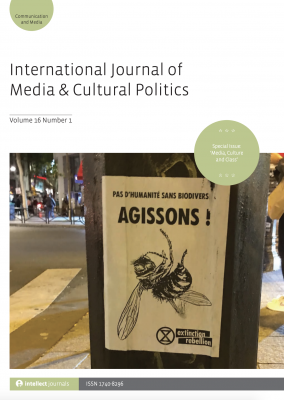 Disillusioned with his experience as propagandist for the Wilson government during the First World War, the then journalist Walter Lippmann shut himself in his Summer cottage to write a book about the limits of popular self-government in contemporary complex societies. Given that journalism was unable to provide an accurate and comprehensive picture of events to a mostly inattentive audience, it was time to acknowledge that a group of insiders should pre-cook the choices for the outsiders at large.
Disillusioned with his experience as propagandist for the Wilson government during the First World War, the then journalist Walter Lippmann shut himself in his Summer cottage to write a book about the limits of popular self-government in contemporary complex societies. Given that journalism was unable to provide an accurate and comprehensive picture of events to a mostly inattentive audience, it was time to acknowledge that a group of insiders should pre-cook the choices for the outsiders at large.Design in Choas the New Beginning: Fashion, Style, Design, Brands & Consumer Culture
Visit the MAI webpage for more information.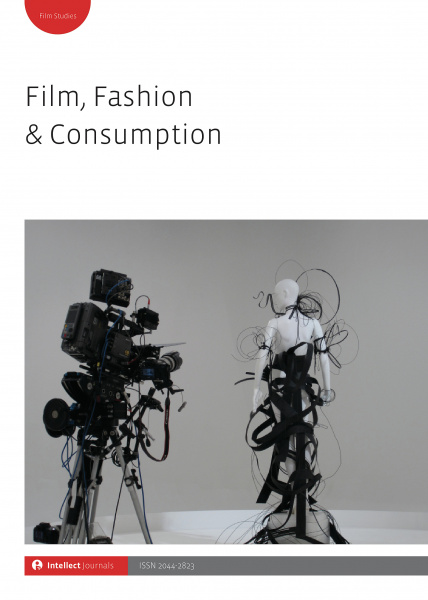
Email proposals to Guest Editors Lisa J. Hackett and Jo Coghlan.